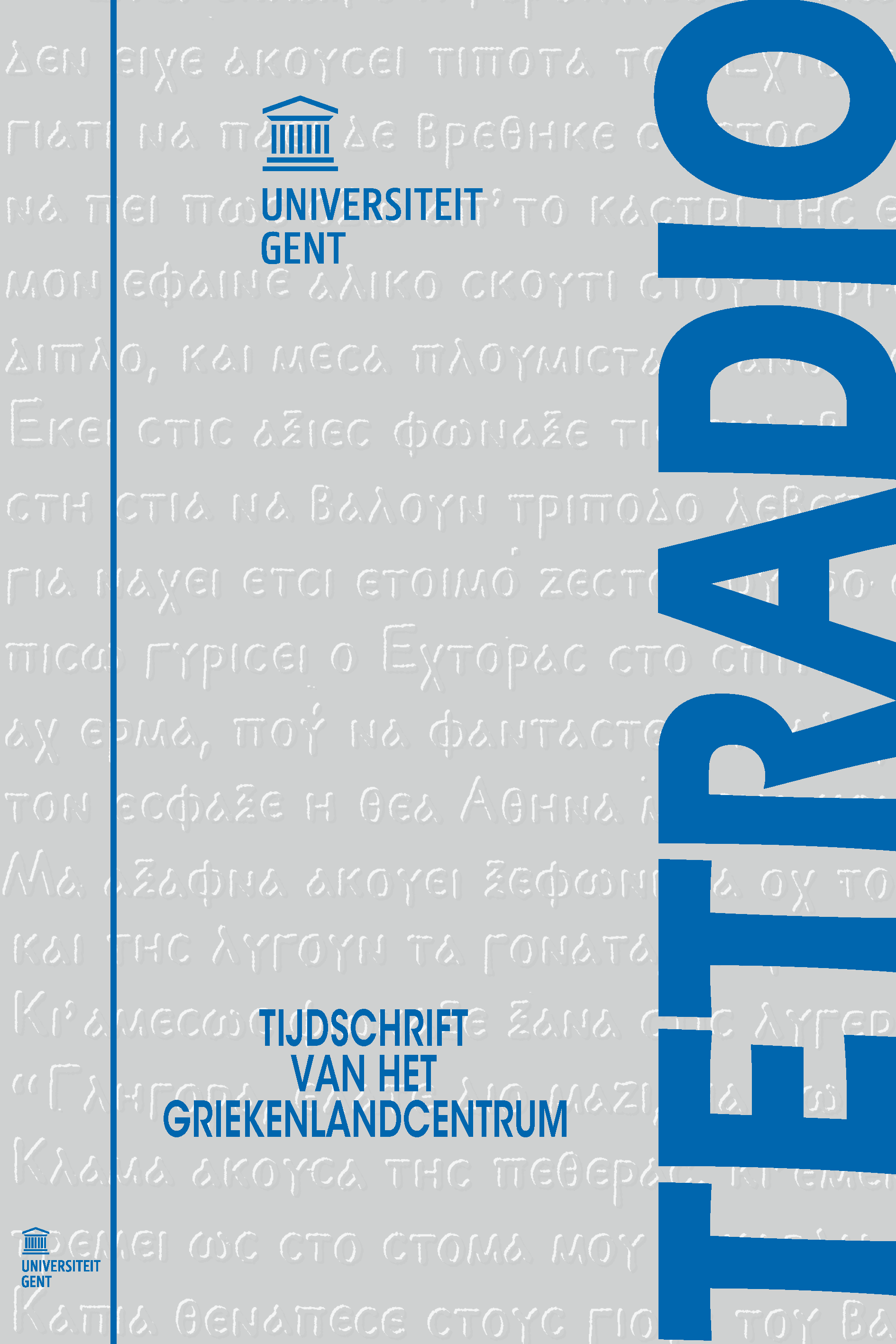Niet applaudisseren, alstublieft. Over theatervrees en performance in Byzantium
Abstract
Between the 2nd and 6th centuries AD, numerous Christian leaders condemned the theatre. Their criticism was directed not only against the pagan theatrical tradition, which still enjoyed much popularity in late antiquity, but also against theatre as an art form. To them, theatre was equivalent to deception and illusion. It literally deceived the spectators and corrupted them through false realities. This meant that theatre was regarded as a devilish and dangerous practice. These critiques closely echo Platonic warnings against the deceptive allurements of fiction. They also explain why Byzantium (unlike the Christian West) never developed a religious theatre. At the same time, the Byzantines had their own ways of entertaining the public
How to Cite:
Van Pelt, J., (2022) “Niet applaudisseren, alstublieft. Over theatervrees en performance in Byzantium”, Tetradio 31(1): 3, 43–76. doi: https://doi.org/10.21825/tetradio.91594
Downloads:
Download PDF
View PDF

